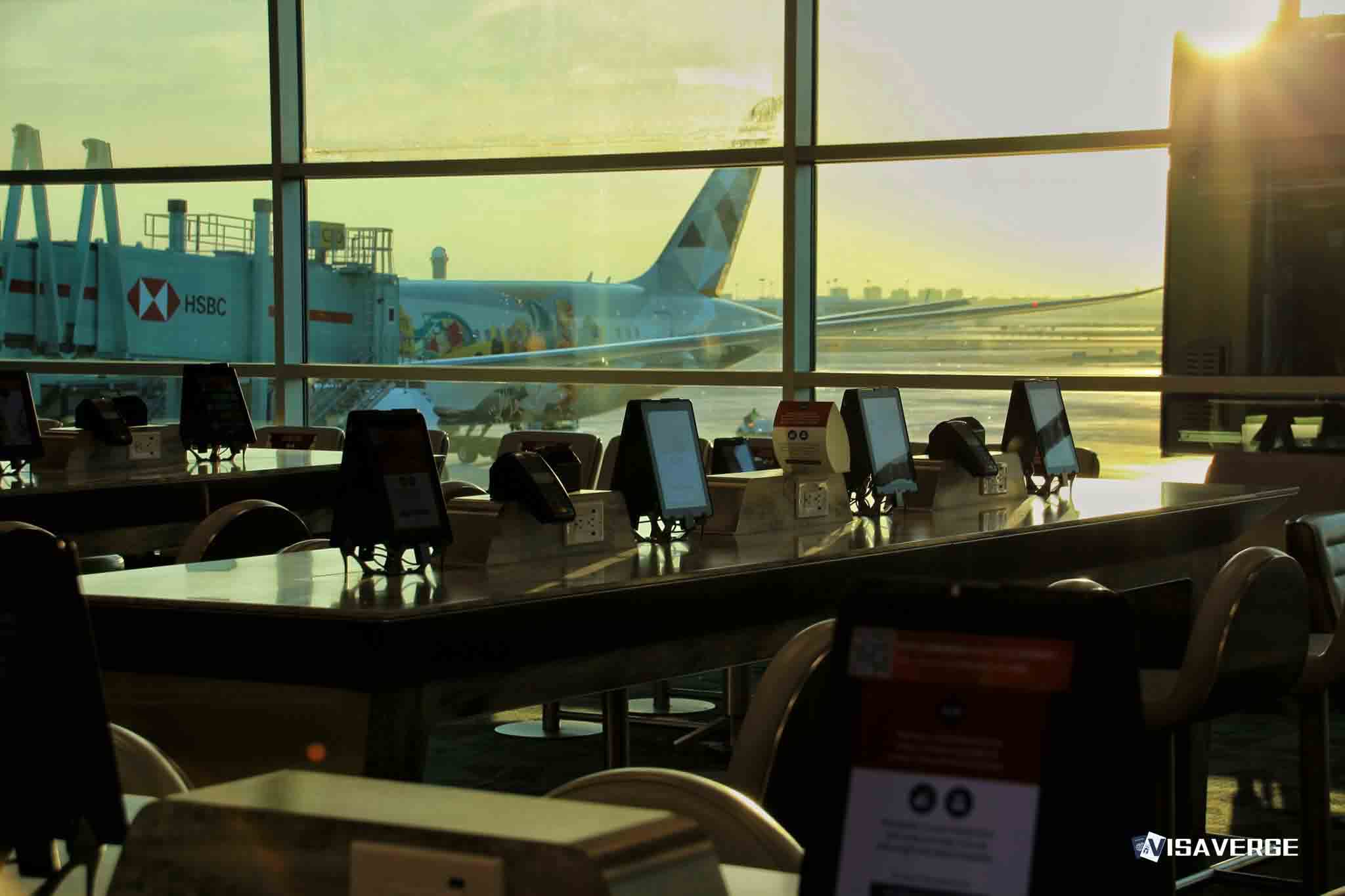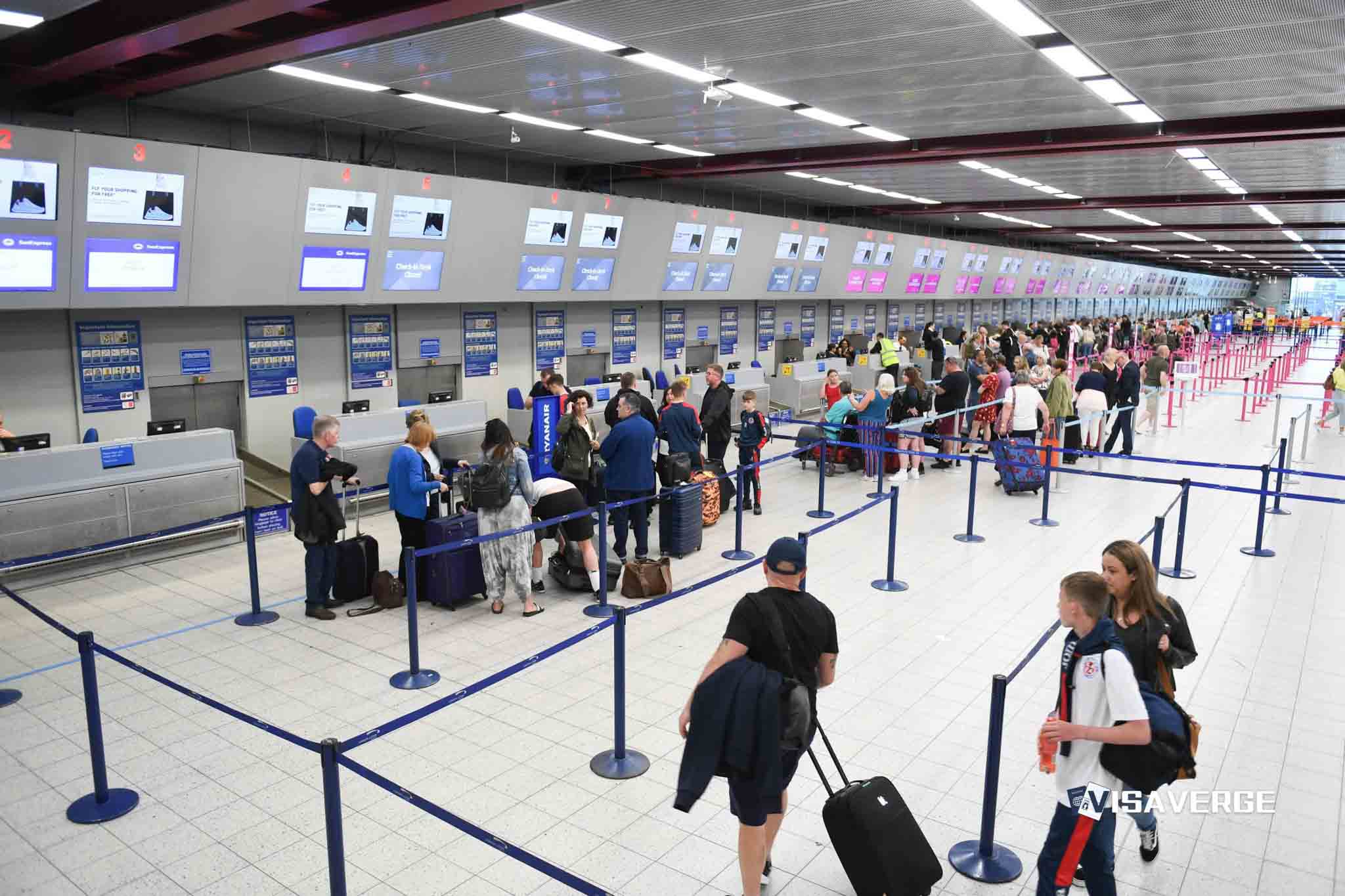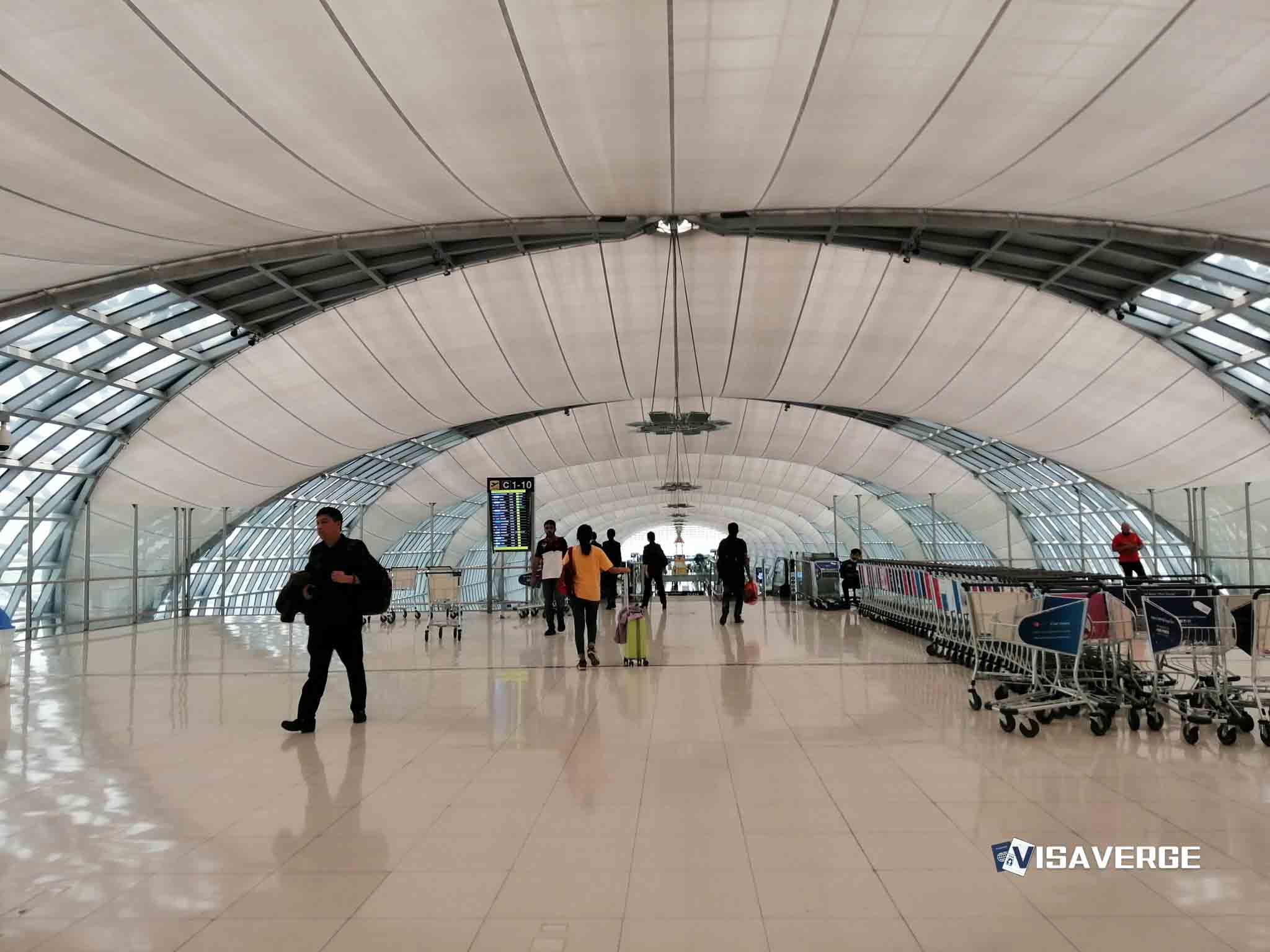Key Takeaways
• Avelo started deportation flights from Phoenix-Mesa Gateway on May 19, 2025 under a long-term ICE contract.
• Three Boeing 737-800s serve deportation routes mainly to Guatemala, Honduras, and El Salvador from Arizona.
• Public backlash includes petitions, political criticism, and concerns over ethics and family separations.
Avelo Airlines Launches Deportation Flights from Arizona to Guatemala: What It Means for Immigrants, Communities, and the Airline Industry
Avelo Airlines, a budget carrier known for its low fares and flights to smaller airports, has started operating deportation flights from Arizona to Guatemala. The first of these flights took off from Phoenix-Mesa Gateway Airport on May 19, 2025, marking a new chapter in both the airline’s business and the United States 🇺🇸 government’s approach to immigration enforcement. This move is part of a long-term contract with U.S. Immigration and Customs Enforcement (ICE), and it has already sparked strong reactions from immigrant communities, local leaders, and industry experts.

Who, What, When, Where, Why, and How
- Who: Avelo Airlines, in partnership with ICE, is operating these flights.
- What: Deportation flights carrying migrants from Arizona to Guatemala and other Central American countries.
- When: The first flight took off on May 19, 2025, with the contract announced in April 2025.
- Where: Flights depart from Phoenix-Mesa Gateway Airport in Arizona, with stops in El Paso and final destinations in Guatemala City.
- Why: The flights are part of a government effort to remove migrants who do not have legal status in the United States 🇺🇸.
- How: Avelo uses three Boeing 737-800 aircraft dedicated to these operations, under a long-term charter agreement with ICE.
Let’s break down what this means for everyone involved, why it matters, and what could happen next.
Avelo Airlines’ New Role in Deportation Flights
Avelo Airlines has traditionally focused on serving leisure travelers, offering affordable flights to smaller airports across the United States 🇺🇸 and to select international destinations. However, in April 2025, the airline signed a long-term contract with ICE to operate deportation flights. This contract covers both domestic transfers between detention centers and international flights, mainly to Central American countries.
Key Details of the Contract:
– Aircraft: Three Boeing 737-800 planes are dedicated to these flights.
– Base of Operations: Mesa Gateway Airport in Arizona.
– Destinations: Guatemala is the primary destination, followed by Honduras and El Salvador.
– Scope: The contract includes both moving people within the United States 🇺🇸 and deporting them to other countries.
According to Tom Cartwright, an immigration advocate and flight data analyst for Witness at the Border, the U.S. Department of Homeland Security spends between $25 million and $35 million each month on deportation flights. The total value of this business is estimated at $100 million per year. For Avelo Airlines, this represents a major new source of revenue.
Why Did Avelo Airlines Enter This Market?
Andrew Levy, Avelo’s founder and CEO, has openly acknowledged that this is a “sensitive and complicated topic.” He explained that the decision to work with ICE was made to support the airline’s growth and protect jobs. The financial benefits of the contract were significant enough for Avelo to accept the risk of public criticism.
Levy’s statement reflects the tough choices airlines sometimes face: “We realize this is a sensitive and complicated topic.” The company’s leadership believes that expanding into government contracting will help secure its future and keep people employed.
How Is This Different from Other Airlines?
Most deportation flights are handled by charter companies that do not sell tickets to the public. Avelo’s involvement is unusual because it is a commercial airline that also serves regular passengers. According to Cartwright, Global X currently operates about 70-80% of deportation flights and also uses Mesa Gateway Airport as a base.
This dual role—serving both leisure travelers and the government’s deportation needs—sets Avelo apart in the airline industry. It raises questions about how airlines balance business opportunities with social responsibility.
Public and Political Reactions
The decision by Avelo Airlines to operate deportation flights has led to strong reactions, especially in communities where the airline is popular with travelers.
Community Response in New Haven, Connecticut
Avelo markets itself as “New Haven’s hometown airline,” and the city is one of its key markets. After learning about the ICE contract, New Haven Mayor Justin Elicker called Avelo’s CEO directly to express his concerns. He later released a statement calling the decision “deeply disappointing and disturbing” and said it was “antithetical to New Haven’s values.”
Local groups have also taken action. The New Haven Immigrants Coalition started an online petition urging people to boycott Avelo Airlines. This shows that the airline could face real business risks if public opposition grows.
Broader Political and Social Concerns
The use of commercial airlines for deportation flights is controversial. Many people believe that airlines should not be involved in removing migrants, especially when families and children are affected. Others argue that airlines are simply providing a service to the government and should not be blamed for enforcing the law.
The issue is especially sensitive in the current political climate, where immigration is a major topic of debate. The Trump administration’s policies on deportation have been a source of division, and Avelo’s new contract puts it in the middle of this national conversation.
How Deportation Flights Work
Deportation flights are special flights arranged by ICE to remove people from the United States 🇺🇸 who do not have legal status. These flights are not open to the public. Instead, ICE charters entire planes and fills them with people who have been ordered to leave the country.
Key Points About Deportation Flights:
– Security: Flights are heavily guarded, with ICE officers on board.
– Destinations: Most flights go to Central America, especially Guatemala, Honduras, and El Salvador.
– Process: People are taken from detention centers to the airport, then flown to their home countries.
For more information about how ICE conducts these operations, you can visit the official ICE Air Operations page.
Impact on Immigrants and Their Families
Deportation flights have a huge impact on the people involved. Many of those being deported have lived in the United States 🇺🇸 for years, built families, and established lives. Being forced to leave can mean separation from loved ones, loss of income, and return to dangerous or unstable conditions.
Common Concerns Raised by Advocates:
– Family Separation: Many deportees leave behind children or spouses who are U.S. citizens or legal residents.
– Safety: Some people fear violence or persecution in their home countries.
– Due Process: Advocates worry that people may not have had a fair chance to present their case before being deported.
According to analysis by VisaVerge.com, the use of commercial airlines like Avelo for deportation flights can make the process more efficient for the government but also raises ethical questions about the role of private companies in immigration enforcement.
Financial and Business Implications for Avelo Airlines
The ICE contract is a major financial win for Avelo Airlines. With the government spending up to $35 million a month on deportation flights, the airline stands to gain a steady stream of income. This could help Avelo weather tough times in the airline industry, especially as competition grows and fuel prices remain unpredictable.
However, the contract also brings risks:
– Reputation: Negative publicity could hurt Avelo’s brand, especially among travelers who oppose deportation policies.
– Boycotts: Organized efforts to avoid flying with Avelo could reduce ticket sales.
– Employee Morale: Some airline staff may feel uncomfortable working for a company involved in deportations.
Avelo’s leadership will need to manage these risks carefully to protect both its business and its public image.
Avelo’s Ongoing Passenger Operations
While the deportation flights are a new part of Avelo’s business, the airline continues to serve regular passengers. Avelo offers flights to destinations across the United States 🇺🇸, including California, Oregon, Montana, Nevada, and Florida. The airline also flies to international vacation spots in the Caribbean and Mexico 🇲🇽, such as the Dominican Republic, Jamaica, Puerto Rico, and Mexico.
Avelo’s business model focuses on:
– Low Fares: Keeping prices affordable for families and leisure travelers.
– Smaller Airports: Serving airports that are less crowded and closer to home for many people.
– Reliability: Promoting on-time performance as a key selling point.
The airline is currently booking flights through November 18, 2025, and continues to market itself as a friendly, affordable option for travelers.
Industry Context: Who Else Operates Deportation Flights?
Avelo is not the only airline involved in deportation flights, but it is one of the few commercial carriers to do so. Most deportation flights are handled by charter companies like Global X, which specializes in government contracts and does not sell tickets to the public.
This makes Avelo’s involvement unusual and noteworthy. It also means that the airline is likely to face more public scrutiny than companies that operate behind the scenes.
What Does This Mean for the Future?
Avelo’s entry into the deportation flight business is likely to have lasting effects on the airline, its passengers, and the communities it serves.
Possible Outcomes:
– Expansion of Government Contracting: If the ICE contract proves profitable, Avelo may seek more government work in the future.
– Public Backlash: If opposition grows, Avelo could lose customers in key markets.
– Industry Changes: Other airlines may watch Avelo’s experience closely to decide whether to enter this market themselves.
The long-term nature of the contract suggests that deportation flights will become a regular part of Avelo’s operations. The company’s willingness to take on this controversial work shows a focus on growth and revenue, even at the risk of public criticism.
Practical Guidance for Stakeholders
If you are an immigrant, advocate, or community leader concerned about deportation flights, here are some steps you can take:
– Stay Informed: Follow updates from ICE and local advocacy groups to understand how deportation policies are changing.
– Know Your Rights: If you or someone you know is at risk of deportation, consult with a qualified immigration attorney. You can find official information and resources on the U.S. Citizenship and Immigration Services (USCIS) website.
– Engage Politically: Contact local officials and participate in community discussions to make your voice heard.
– Support Affected Families: Many organizations offer legal, financial, and emotional support to families facing deportation.
For travelers, it’s important to be aware of the airlines you choose and the business practices they support. If you have concerns about Avelo Airlines’ involvement in deportation flights, consider reaching out to the company or exploring other travel options.
Conclusion: A Complex Issue with Far-Reaching Impacts
Avelo Airlines’ decision to operate deportation flights from Arizona to Guatemala is a major development in both the airline industry and U.S. immigration policy. It highlights the complex relationship between private companies and government enforcement efforts, as well as the real-life consequences for immigrants and their families.
As the situation evolves, all eyes will be on Avelo Airlines to see how it balances its business interests with public opinion and social responsibility. The outcome will likely influence not only the company’s future but also the broader debate over immigration and the role of private companies in government operations.
By staying informed and engaged, communities and individuals can help shape the conversation and ensure that all voices are heard in this important debate.
Learn Today
Deportation Flights → Special flights chartered by ICE to remove migrants lacking legal status from the U.S. to home countries.
ICE → U.S. Immigration and Customs Enforcement agency responsible for enforcing immigration laws and deportations.
Boeing 737-800 → A mid-sized commercial airplane model used by Avelo for deportation and regular flights.
Charter Agreement → A contract where an airline provides aircraft services directly for specific clients like the government.
Family Separation → The disruption caused when deportees leave behind relatives legally residing in the U.S.
This Article in a Nutshell
Avelo Airlines began deportation flights from Arizona to Guatemala in May 2025 under ICE contract. This move sparks controversy affecting immigrants, communities, and the airline’s reputation amid financial gains and public protests. The airline blends commercial service with government deportations, raising ethical questions about private-sector roles in immigration enforcement.
— By VisaVerge.com






